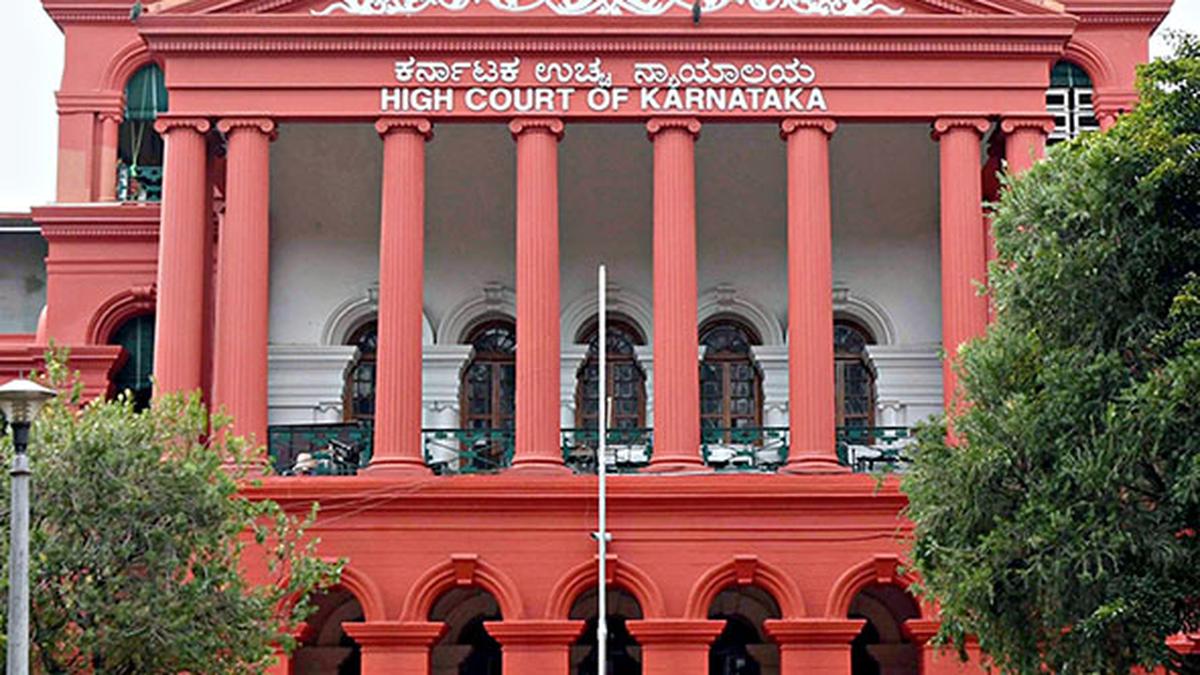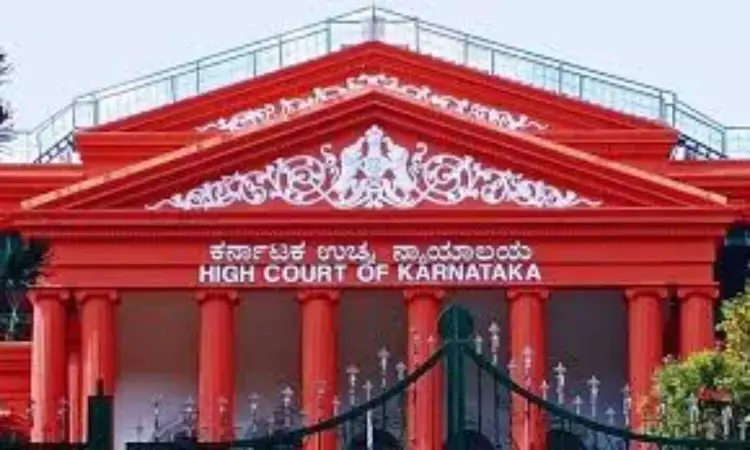The Karnataka High Court order has directed the National Medical Commission (NMC) to take strict action against two medical colleges found to have illegally admitted students to postgraduate medical courses. The court noted that these admissions violated established regulations, bypassed merit-based counseling procedures, and undermined the integrity of medical education in the state. Authorities have been instructed to investigate the matter thoroughly, cancel the illegal admissions, and initiate disciplinary action against the colleges involved. This move is expected to serve as a warning to other institutions attempting to circumvent regulatory guidelines.
Petitioners had approached the High Court after discovering that several students were enrolled without proper approval, bypassing eligibility criteria and official counseling processes. According to submissions, these admissions compromise both the academic quality and the fairness of selection for postgraduate courses. Legal experts argue that such practices not only harm deserving candidates but also risk the standards of medical training, potentially affecting patient care in the long term. The court’s intervention underscores the importance of strict adherence to established medical education rules.
The state government and NMC have been directed to coordinate closely to ensure compliance and prevent recurrence. The High Court emphasized that timely action is critical to maintain public confidence in the medical education system. Authorities are now tasked with reviewing admission records, verifying eligibility, and taking appropriate punitive measures against the colleges. The verdict also highlights the judiciary’s proactive stance in upholding fairness, transparency, and meritocracy in higher education, signaling zero tolerance for irregularities in crucial professional courses.

Impact on Students and Institutions
Students enrolled in the affected courses have expressed concern over the potential cancellation of their admissions. While some argue they were unaware of the irregularities, others worry about disruptions to their academic progress. Educational experts emphasize the importance of maintaining transparency, fairness, and communication to minimize distress to students while enforcing regulatory compliance. Colleges are now under pressure to align fully with NMC guidelines or face strict legal consequences.
The ruling also sends a broader message to other medical institutions across Karnataka and India. Compliance with NMC regulations, merit-based admissions, and adherence to transparent counseling processes are non-negotiable. Authorities have been urged to monitor institutions more rigorously to prevent exploitation and to ensure that medical education remains credible and competitive. The High Court’s order strengthens regulatory oversight, protecting the interests of students, patients, and the medical profession.

The issue came to light after discrepancies were noticed in the admission records of two prominent medical colleges in Karnataka. Several students had been admitted to postgraduate courses without undergoing the prescribed counseling process or meeting minimum eligibility criteria. Complaints were filed by candidates who had followed the proper channels, highlighting the unfair advantage gained by those admitted illegally. The petitioners argued that the irregularities undermined meritocracy and transparency, prompting the High Court to intervene. This case has brought renewed attention to the need for strict monitoring of medical institutions by regulatory bodies.
Medical education experts stress that postgraduate courses are critical for developing specialists who will provide advanced healthcare services. Any compromise in admission standards can have long-term consequences, not just for the students but for patient care across the state. The unauthorized admissions create a ripple effect, reducing opportunities for deserving candidates and diluting the quality of trained medical professionals. The High Court’s directive ensures that students are selected purely on merit, reinforcing confidence in Karnataka’s medical education system and maintaining the standards required for safe and competent healthcare.
The National Medical Commission has been ordered to take immediate action, including verification of all admission records for the current academic year. NMC officials are expected to review documentation, ensure that only eligible students are enrolled, and report compliance to the court. In addition, the commission may initiate disciplinary proceedings against the colleges’ management for violations of regulations. This strict oversight aims to prevent recurrence and establish accountability for administrative lapses. Legal experts note that this level of scrutiny is unprecedented in Karnataka’s medical education landscape.
Students enrolled under irregular circumstances face uncertainty about their academic futures. While the court has emphasized the need to enforce rules, it has also acknowledged that students unaware of the irregularities should not be unfairly penalized. The NMC and state authorities are expected to differentiate between administrative negligence by the colleges and genuine students, ensuring that corrective measures are fair and proportionate. Counseling sessions may be redone to accommodate legitimate candidates and restore confidence in the admission process.
Several educational institutions in Karnataka have come under scrutiny following this ruling. The case highlights broader concerns about transparency, governance, and adherence to regulations in professional education. Experts argue that a lack of strict monitoring allows some colleges to exploit loopholes, risking the credibility of higher education. The High Court’s directive serves as a warning, signaling zero tolerance for violations. By taking decisive action, the judiciary aims to protect students’ rights while upholding the standards set by national regulatory frameworks.
The illegal admissions were reportedly facilitated through manipulation of records and bypassing official merit lists. Interviews with college administrators revealed gaps in internal compliance mechanisms, raising questions about oversight within institutions themselves. Regulatory authorities have emphasized the importance of internal checks and audits to prevent future violations. Colleges are now being instructed to strengthen their administrative processes, maintain transparent documentation, and submit detailed reports to the NMC. Failure to comply could result in penalties, including suspension of courses, fines, or withdrawal of recognition.
Parents of affected students have expressed concern over delays and potential academic disruptions. Some parents reported that their wards were enrolled through legitimate processes, only to discover that others had gained entry unlawfully. This has led to anxiety, confusion, and frustration, highlighting the personal impact of administrative lapses. Stakeholders are calling for timely communication from the colleges and regulators to ensure clarity and maintain trust. The authorities are expected to provide guidance and support to help students navigate any corrective measures mandated by the High Court.
The ruling has wider implications for the governance of medical education in India. Experts argue that monitoring by national authorities like NMC must be proactive rather than reactive. Periodic audits, stricter reporting requirements, and automated verification systems could help prevent illegal admissions. Legal experts note that the Karnataka case may serve as a precedent, prompting other states to review compliance mechanisms in medical colleges. This could lead to nationwide reforms, ensuring that postgraduate medical education maintains integrity, fairness, and high standards.
Academic counselors have advised students to keep complete records of their applications, admission letters, and counseling documents. Such documentation will be critical in proving eligibility and securing rightful admission if corrective actions are taken. Counselors also recommend students maintain regular communication with both their colleges and the NMC to stay updated on official proceedings. By taking proactive steps, students can minimize disruption to their academic schedule and safeguard their careers while the authorities carry out necessary investigations and compliance measures.
The case has also drawn attention from political leaders and policymakers. Some have highlighted that systemic weaknesses in higher education administration must be addressed to prevent exploitation. Legislative oversight, improved regulatory capacity, and enforcement of standardized admission protocols are suggested solutions. The incident is likely to spark debate in educational forums and policy discussions, with stakeholders calling for more stringent accountability measures to ensure that similar violations do not occur in the future.
Legal experts emphasize that the High Court’s intervention reinforces the judiciary’s role in protecting educational fairness. Courts have increasingly taken an active stance in ensuring compliance with regulations governing professional courses. By holding both colleges and regulators accountable, the judiciary aims to restore confidence in the system. Experts argue that such rulings are essential for maintaining standards in fields like medicine, where education directly impacts public health and societal well-being.
Several student unions and associations have welcomed the court’s directive. They argue that unchecked irregularities compromise opportunities for meritorious candidates and degrade academic standards. Advocacy groups are now calling for wider audits across all professional courses in the state to ensure that regulations are uniformly followed. They emphasize the importance of transparency and meritocracy, urging regulatory authorities to implement systemic reforms and avoid selective enforcement.
The NMC has reportedly initiated preliminary investigations in response to the court order. Teams are verifying student records, identifying violations, and coordinating with state authorities to cancel illegal admissions. Colleges have been given strict deadlines to comply, with failure to adhere likely resulting in sanctions. Officials have also emphasized that disciplinary measures could include suspension of courses, fines, and revocation of recognition for non-compliance. The actions taken in the coming weeks will be closely monitored by both students and the judiciary.
Finally, the High Court’s directive highlights the critical importance of upholding integrity in higher education. By ordering action against the colleges, the judiciary is sending a clear message that regulations are non-negotiable and must be enforced rigorously. The decision not only safeguards students’ rights but also protects the credibility of Karnataka’s medical education system. Authorities, institutions, and students alike are expected to cooperate fully, ensuring that postgraduate admissions proceed in a fair, transparent, and merit-based manner.
Restoring Integrity in Medical Education
With this directive, the Karnataka High Court aims to reinforce the standards of medical education, ensuring that only deserving candidates secure postgraduate seats. The action against the two colleges is expected to deter similar violations and encourage strict observance of NMC rules. By prioritizing transparency and meritocracy, the judiciary is taking a decisive step toward restoring public trust in the state’s medical education system. Students, regulators, and educational institutions are now watching closely, as the outcome may reshape compliance practices for postgraduate medical admissions across the state.
Follow: Karnataka Government
Also read: Home | Channel 6 Network – Latest News, Breaking Updates: Politics, Business, Tech & More

